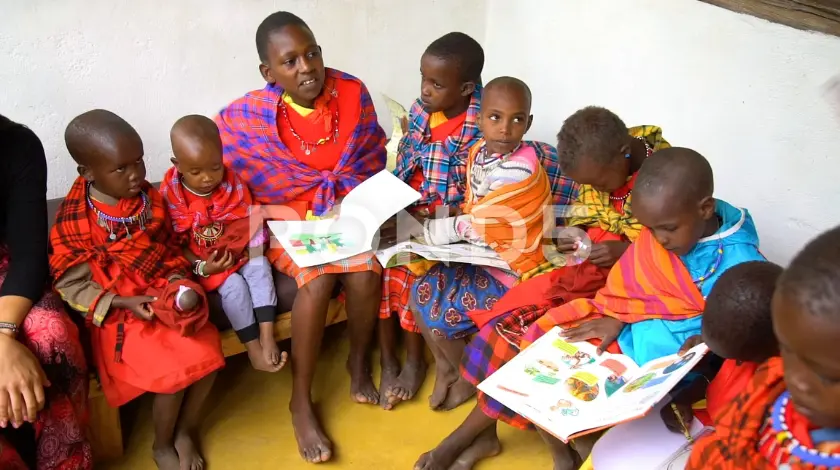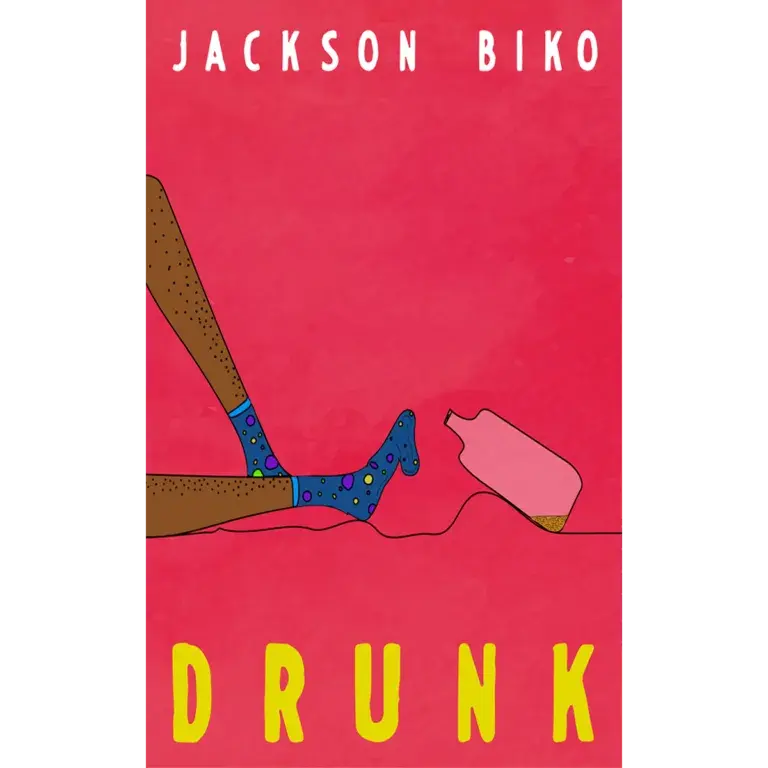Reading culture in Kenya is evolving, shaped by education, socio-economic conditions, and technology. Understanding these factors helps to see how reading habits grow and change.
Establishing a strong reading culture in Kenya has become a vital goal for educators and community leaders.
Kenya’s reading culture is improving thanks to several initiatives such as Writers Guild-Kenya that aim to encourage reading and writing habits in the country.
Despite the progress, challenges persist. Many schools in Kenya lack libraries and sufficient resources to support reading habits among students.
The absence of firm government policies further complicates efforts to instill a sustainable reading culture. The cultivation of reading habits often relies on individual initiatives and community support.
Encouragingly, a recent study indicates that Nairobi residents have a strong reading culture, influenced by factors such as income, gender, and age.
This points to a growing awareness and appreciation for reading in various parts of the country.
By supporting initiatives and addressing existing gaps, Kenya can continue to nurture a thriving reading culture for future generations.
Historical background
The history of reading in Kenya is shaped by the influence of Swahili and oral traditions, as well as the impact of colonial rule on literacy and literature. These factors together have deeply influenced the evolution of reading culture in the country.
Influence of Swahili and oral traditions
Swahili, or Kiswahili, has been a key part of Kenya’s cultural and linguistic landscape. It serves as a bridge language among various ethnic groups. Oral traditions have long been an important way of preserving history, morals, and culture.
Swahili literature, especially oral poetry and stories, has been transmitted across generations. These forms include “ngonjera” (poetic dialogue), riddles, and proverbs.
They foster a rhythm of communal learning and serve as the foundation for literacy before written language became widespread.
In the coastal regions, the Swahili people developed a rich literary tradition influenced by Arabic literature.
This tradition included the writing of historical chronicles and religious texts. The use of the Arabic script to write Swahili facilitated the recording and dissemination of knowledge and culture.
Impact of colonialism on literacy and literature
Colonialism brought profound changes to Kenya’s literacy and literary landscape.
The British colonial administration introduced English as the language of instruction in schools, significantly affecting local languages and cultures.
Libraries were established mainly for European settlers, limiting access to the local population.
Missionaries played a significant role in setting up schools, focusing on translating religious texts into local languages.
These efforts led to the establishment of early reading materials in various Kenyan languages, including Swahili.
However, the colonial educational system often prioritized European literary traditions over indigenous ones.
Kenya’s struggle for independence also produced literature that highlighted colonial injustices and inspired a sense of national identity.
Post-independence efforts have seen a revival of Indigenous literature and increased emphasis on promoting literacy in both English and Kiswahili.
This blend of influences continues to shape Kenya’s reading culture today, balancing the colonial legacy with rich indigenous traditions.
Today, literacy rates are high, but reading for pleasure and self-improvement still faces challenges. In Nairobi, the literacy level is estimated to be about 85%
The current state of the reading culture

The nation’s reading culture is influenced by the availability of reading materials, the presence and condition of libraries, and educational initiatives aimed at improving literacy rates.
Availability of Reading materials
One of the key factors affecting the reading culture in Kenya is the availability of reading materials.
Many schools and communities lack adequate reading materials, making it difficult for students to develop strong reading habits. Although there have been efforts to increase the availability of books, barriers such as cost and distribution remain.
Public and private libraries
Libraries play a crucial role in promoting a reading culture.
In Kenya, both public and private libraries contribute to this effort. Nairobi boasts of several libraries, but their reach is often limited to urban areas.
Many rural regions lack similar facilities, which hinders the spread of a strong reading culture.
Literacy rates and educational initiatives
Kenya has made significant strides in improving literacy rates through various educational initiatives.
The government and non-profit organizations run programs to boost reading skills among students and adults.
Education system
Kenya’s education system significantly influences reading habits.
- School libraries: Schools aim to stock libraries with various books, but many, especially in rural areas, lack sufficient resources.
- Reading clubs: Schools promote reading clubs where students discuss books and share ideas, encouraging reading beyond academics.
Socio-economic factors
Socio-economic conditions greatly impact reading culture. In low-income areas, access to books is limited due to financial constraints.
Community initiatives and NGOs work to bridge this gap.
- Mobile libraries: The Kenya National Library Service (KNLS) operates mobile libraries, bringing books to remote areas.
- Book donations: Programs collect and distribute books to schools and communities in need.
Digital influence
Digital technology is transforming reading habits in Kenya. Smartphones and the internet provide access to eBooks, articles, and digital newspapers.
Worldreader initiatives: Worldreader partners with local publishers to digitize Kenyan books in multiple languages. Apps like BookSmart offer free access to a wide range of books, ensuring even those in remote areas can read.
Local literature and authors
Kenya has a rich tradition of local literature with authors like Ngũgĩ wa Thiong’o and Grace Ogot. Promoting local literature is essential for:
- Cultural representation: Local stories reflect Kenyan culture, history, and societal issues, fostering pride among readers.
- Literary awards: The Jomo Kenyatta Prize for Literature and Kenya Publishers Association Awards recognize Kenyan authors, encouraging more people to read and write.
Key players
Several organizations and events significantly contribute to promoting reading culture in Kenya:
- Text Book Centre: One of the largest bookstores in Kenya, offering a wide range of books and educational materials.
- Writers Guild Kenya: Supports writers through training, mentorship, and publishing opportunities.
- Nuria Bookstore: A popular bookstore with a vast selection of books, including local and international titles.
- Kenya Publishers Association (KPA): Plays a crucial role in the publishing industry, organizing events like the Nairobi International Book Fair to promote literature and reading.
- Nairobi International Book Fair: An annual event that brings together authors, publishers, and readers for literary discussions and book launches.
Reading events and festivals
Events and festivals are vital for promoting reading culture.
The Nairobi International Book Fair and other regional book fairs gather authors, publishers, and readers, creating excitement around reading.
Challenges and opportunities
Despite positive developments, challenges remain:
- Limited resources: Many schools and communities lack adequate reading materials.
- Language barrier: Kenya’s multilingual society can sometimes hinder access to literature in preferred languages.
- Economic barriers: High poverty rates make purchasing books a low priority for many families.
Opportunities
Opportunities to enhance reading culture in Kenya include:
- Public-private partnerships: Collaborations to improve access to reading materials.
- Promoting digital literacy: Expanding digital reading platforms and training people to use them.
- Encouraging local publishing: Supporting local authors and publishers through grants, workshops, and exposure.
Looking forward: Enhancing the Reading culture

Enhancing the reading culture in Kenya involves engaging readers of all ages, supporting local authors and publishers, and keeping an eye on future trends in reading and literacy.
Strategies for engagement across age groups
To foster a robust reading culture, it’s important to engage children, adults, and retirees.
For children, incorporating reading sessions in schools and libraries can make reading fun. Interactive storytelling and book clubs can also be effective.
Adults benefit from community reading programs and accessible libraries. For retirees, reading clubs and discussion groups can provide a social and intellectual outlet.
Local events where diverse age groups are encouraged to share their favorite books can create a community bond around reading.
Supporting local authors and publishers
Supporting local authors is crucial for preserving Kenya’s rich cultural heritage.
Encouraging local writers to tell their stories can instill pride and inspire others. Initiatives such as writing workshops and grants for local authors can be highly effective.
At iRead, we chip in by showcasing books written by Kenyan authors who are primarily upcoming in the industry.
Local publishers also play a key role in this ecosystem. Providing them with support through favorable policies, tax breaks, and marketing assistance can help in reducing the cost of books, making them more accessible to the public.
This also boosts the local economy and encourages more people to take up writing and publishing.
Future trends in Reading and literacy
The rise of digital technology presents both opportunities and challenges. E-books and online reading platforms can make literature more accessible, especially in remote areas.
Mobile reading apps can cater to the younger generation who are more inclined toward digital content.
Promoting digital literacy is essential to ensure that these technologies are used effectively. Programs that provide access to digital reading materials and train people on how to use them can greatly enhance the reading culture.
Keeping an eye on these trends and adapting to them will be key in maintaining and growing the reading culture in Kenya.
Conclusion
The culture of reading in Kenya is dynamic and evolving.
Continued efforts from various stakeholders can foster a robust reading culture that values literature, promotes education, and enhances personal growth.
Embracing both traditional and digital platforms can ensure reading becomes an integral part of everyday life in Kenya.






